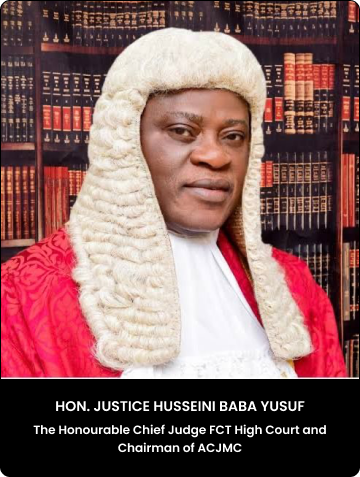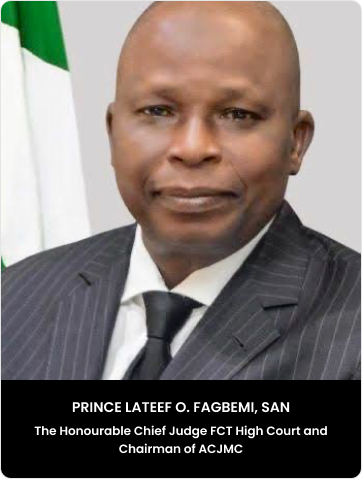

Nigeria's criminal justice system is committed to creating a framework where criminal justice institutions operate efficiently, cases are resolved swiftly, and the rights and interests of suspects, defendants, and victims are protected. The system’s ultimate goals include protecting society from crime and establishing a streamlined process that respects human rights and enhances public trust in the justice system.
Through a series of structured initiatives, the system aims to strengthen compliance with criminal justice provisions, enhance access to justice, reduce court backlogs, and alleviate overcrowding in detention centers by promoting non-custodial measures. Efforts include the development of a centralized digital portal to improve transparency, reporting, and statutory compliance, enabling criminal justice institutions to meet their duties effectively.
Nigeria's criminal justice system is committed to creating a framework where criminal justice institutions operate efficiently, cases are resolved swiftly, and the rights and interests of suspects, defendants, and victims are protected. The system's ultimate goals include protecting society from crime and establishing a streamlined process that respects human rights and enhances public trust in the justice system.
Through a series of structured initiatives, the system aims to strengthen compliance with criminal justice provisions, enhance access to justice, reduce court backlogs, and alleviate overcrowding in detention centers by promoting non-custodial measures. Efforts include the development of a centralized digital portal to improve transparency, reporting, and statutory compliance, enabling criminal justice institutions to meet their duties effectively.
Nigeria's criminal justice system is committed to creating a framework where criminal justice institutions operate efficiently, cases are resolved swiftly, and the rights and interests of suspects, defendants, and victims are protected. The system's ultimate goals include protecting society from crime and establishing a streamlined process that respects human rights and enhances public trust in the justice system.
The Executive Secretary ACJMCd interests of suspects, defendants, and victims are protected. The system's ultimate goals include protecting society from crime and establishing a streamlined process that respects human rights and enhances public trust in the justice system.
Through a series of structured initiatives, the system aims to strengthen compliance with criminal justice provisions, enhance access to justice, reduce court backlogs, and alleviate overcrowding in detention centers by promoting non-custodial measures. Efforts include the development of a centralized digital portal to improve transparency, reporting, and statutory compliance, enabling criminal justice institutions to meet their duties effectively.
Through a series of structured initiatives, the system aims to strengthen compliance with criminal justice provisions, enhance access to justice, reduce court backlogs, and alleviate overcrowding in detention centers by promoting non-custodial measures. Efforts include the development of a centralized digital portal to improve transparency, reporting, and statutory compliance, enabling criminal justice institutions to meet their duties effectively.



MEET THE TEAM
8- Point Agenda ( Section 470 of ACJA)
The Administration of Criminal Justice Act (ACJA) outlines eight key agenda points aimed at strengthening the criminal justice system in Nigeria. Each agenda point represents a commitment to transparency, accountability, and progressive reform.
Speed of criminal matters
Criminal matters are speedily and carefully dealt with ensuring that justice is swiftly delivered

DeCongestion of Criminal Cases.
Congestion of criminal cases in court is drastically reduced, ushering in a more efficient legal proccess

Prison Decongestion
Congestions in prison is reduced to the barest minimum, alleviating the strain on correctional facilities

Reduction of Awaiting Trial Inmates
Persons awaiting trial are as far as possible not detained, in accordance to the principle of justice and human

Stakeholders Collaboration
The relationships between the organs charged with the responsibility of aspects of the administration

Report Generation
Reports are collected, analyzed, and published on Nigeria's criminal justice administration

Quarterly Report to CJN
Quarterly reports submitted to the Chief Justice of Nigeria to keep him abreast of developments

Other Activities
This section highlights key initiatives supporting ACJMC's mission in criminal justice reform.















